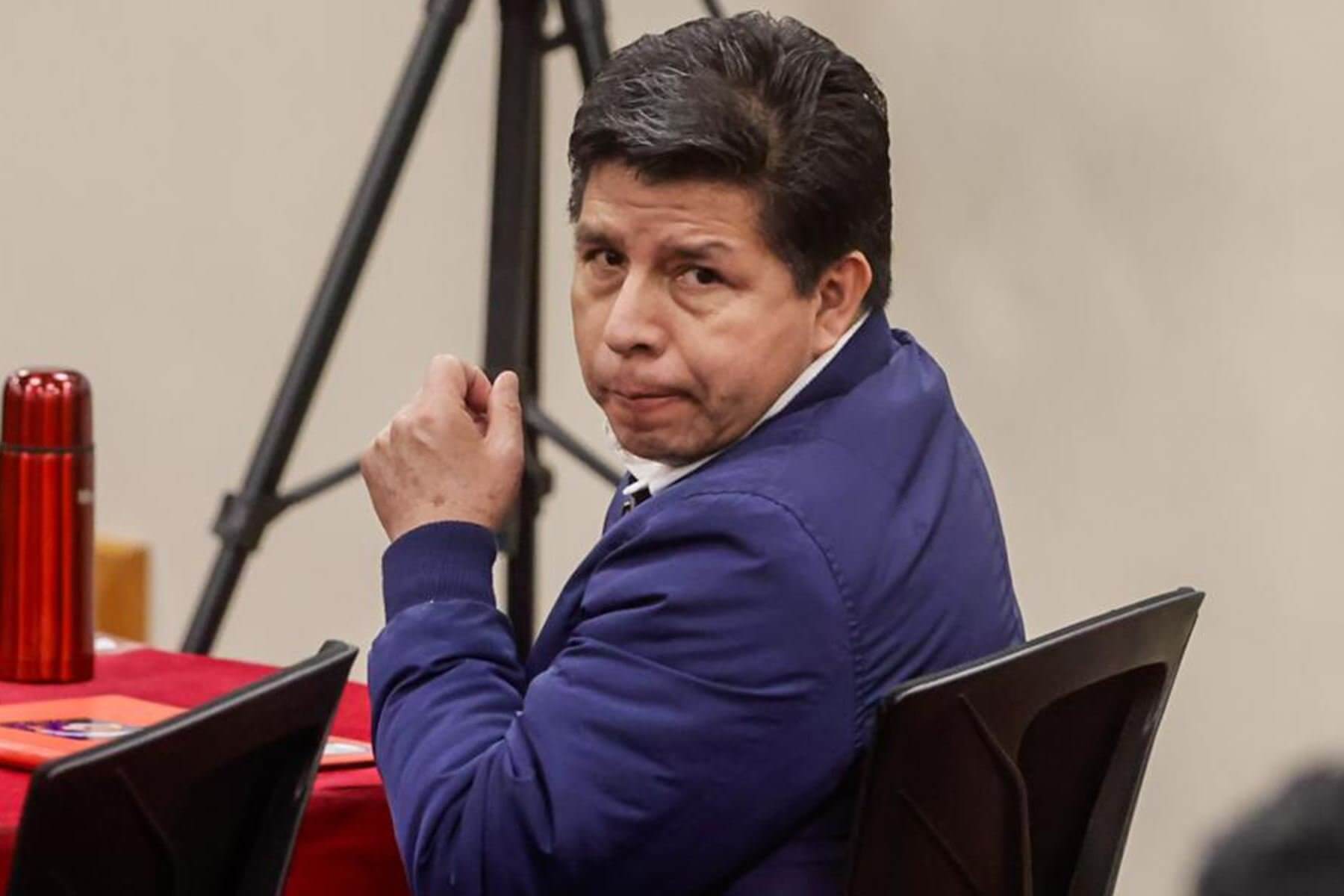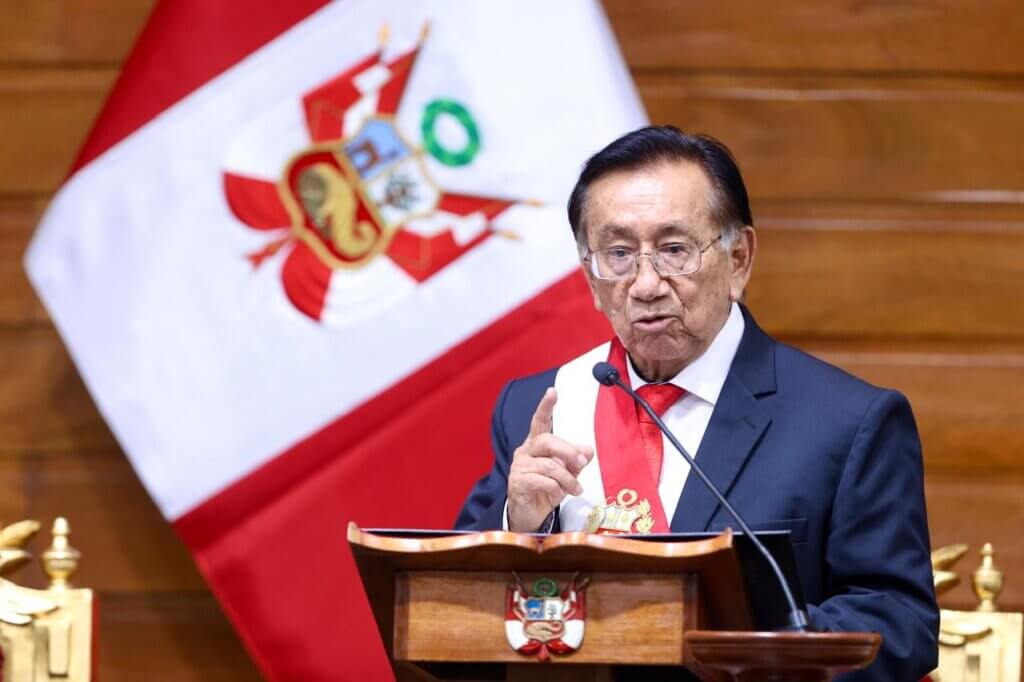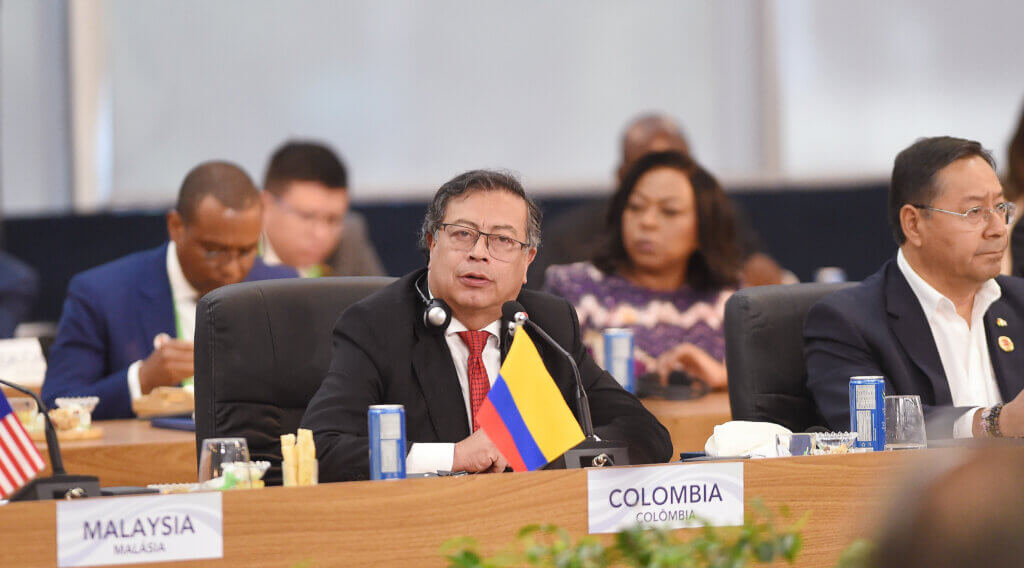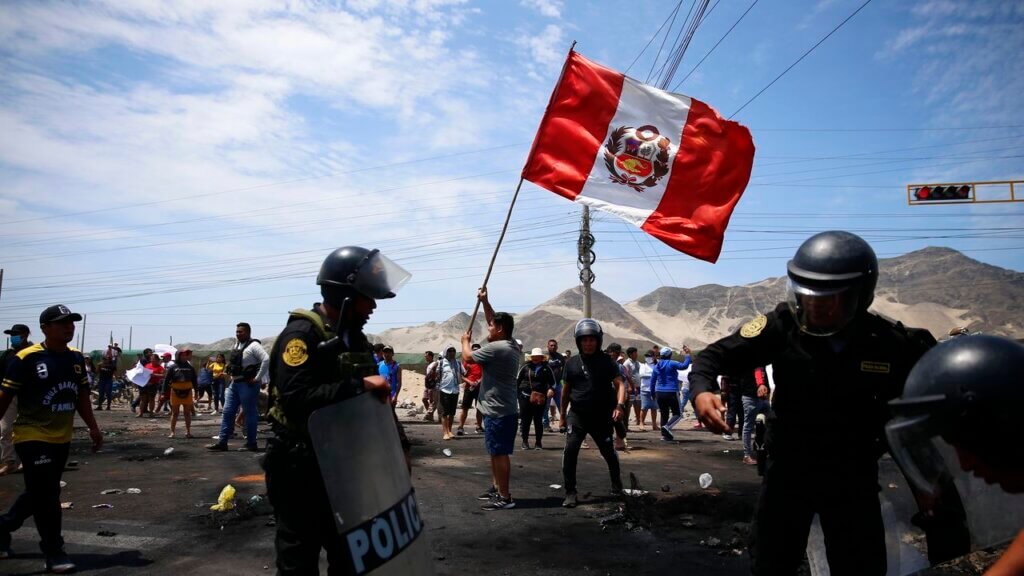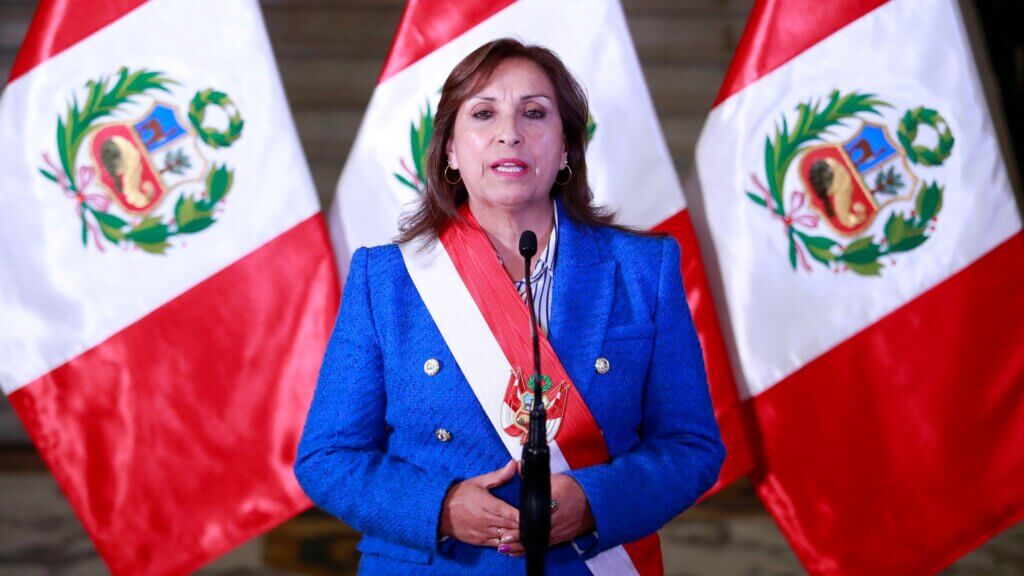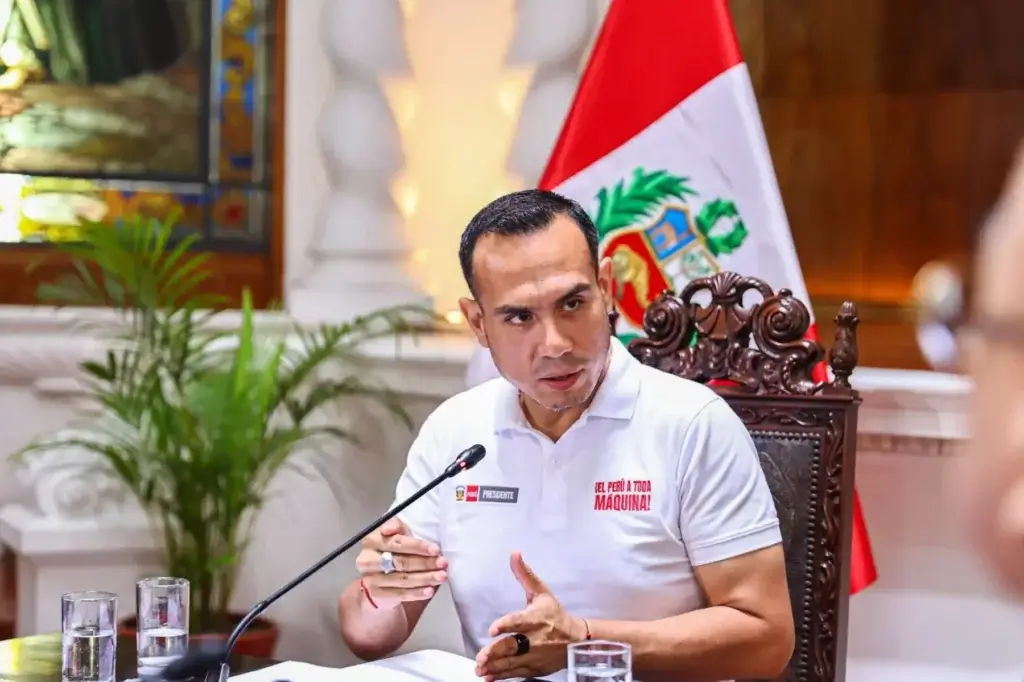Former Peruvian President Pedro Castillo was sentenced on Thursday to 11 years, 5 months and 15 days in prison for his failed attempt to dissolve Congress on December 7, 2022 — an event widely referred to as a self-coup.
The ruling, issued by the Supreme Court’s Special Criminal Chamber, also ordered Castillo and his former ministers Betssy Chávez and Aníbal Torres to pay 12 million soles (approx. US$3.1 million) in civil reparations to the Peruvian state.
Chávez, Castillo’s former prime minister, received an 11-year prison sentence, while Torres — who served as his chief of staff — was sentenced to 6 years and 8 months, a reduced term due to his advanced age. Former Interior Minister Willy Huerta received the same sentence as Castillo, plus two years of disqualification from holding public office.
The tribunal, led by Supreme Judge José Neyra Flores, concluded that Castillo’s televised announcement dissolving Congress constituted “a clear usurpation of power” and therefore established his criminal responsibility in the attempted coup.
The court clarified that the prison sentences for Torres and Huerta will be temporarily suspended if they file appeals, since both complied with all hearings and are not considered flight risks. This means they could await the appeals process in freedom.
Castillo reacts with calm during sentencing
Despite receiving one of the longest sentences imposed on a Peruvian president in recent history, Castillo appeared calm. During a recess he even greeted reporters with a brief smile, showing no visible signs of distress.
The conviction is far lower than the 34-year sentence sought by the Attorney General’s Office for rebellion, abuse of authority and disturbance of public order. Prosecutors argued that Castillo’s announcement demonstrated an intention to dissolve Congress, intervene in the judiciary, and rule by decree.
Court details the roles of Chávez and Torres
The judges also confirmed that Betssy Chávez and Aníbal Torres played an active role in preparing the speech that Castillo read during the attempted self-coup. According to the ruling, both “collaborated directly” in drafting the message and were aware of its unconstitutional nature.
Regarding Chávez, the court stated that she facilitated the irregular entry of TV Perú journalists into the presidential palace to ensure the broadcast of Castillo’s announcement. Her participation, the ruling said, was “conscious and decisive.”
The final session of the trial was held inside the Barbadillo prison complex in east Lima, where Castillo has been detained since his arrest in December 2022.
Supporters claim a political trial
Following the verdict, several political allies of Castillo denounced the ruling.
Former minister Anahí Durand said the sentence “confirms a politically motivated trial” and described it as “a revenge against a government of the people,” adding that international appeals would follow. “We are not living in a full democracy since December 7,” she argued, claiming that “power groups threatened by Castillo are celebrating today.”
Former Health Minister Hernando Cevallos also criticized the ruling, saying it “consolidates an abuse” and insisting the case should have been debated as a constitutional infraction rather than a criminal offense. According to Cevallos, keeping Castillo imprisoned prevents him from rallying public support: “If Pedro Castillo is released and calls a rally, the plazas will fill,” he claimed.
What comes next
Castillo’s legal team is expected to file an appeal, which would send the case to the Permanent Criminal Chamber of the Supreme Court. Meanwhile, the reparations order of 12 million soles will remain in force and must be paid jointly by all convicted former officials.
The sentence marks one of the most consequential legal decisions in Peru’s recent political history and underscores the long-lasting institutional fallout from the events of December 2022.
Featured image: Former President Pedro Castillo
Source: Agencia Andina


